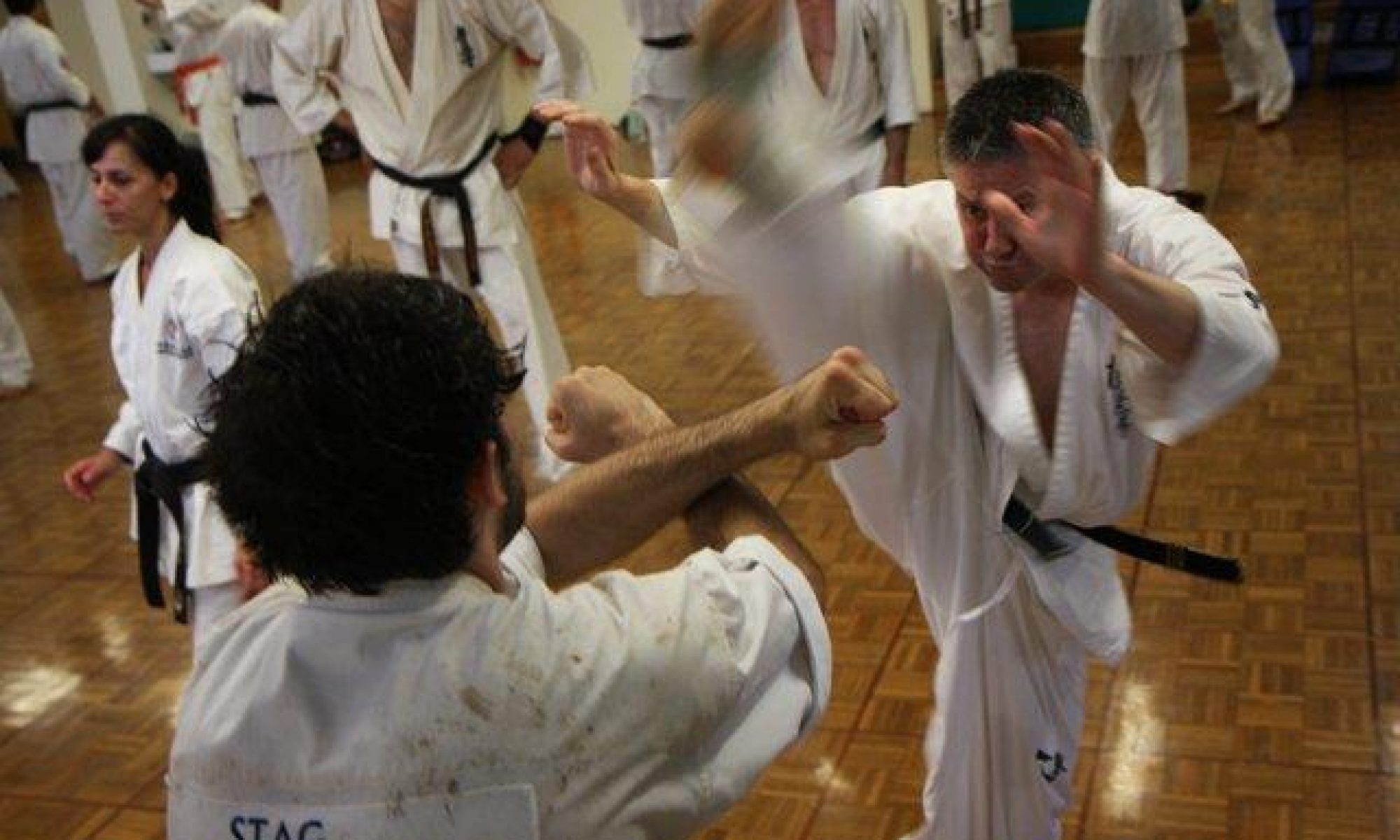“The ultimate aim of the art of karate lies not in victory or defeat, but in the perfection of the characters of its participants.”
Gichin Funakosh
Karate, pronounced Ka-ra-te, is a form of empty handed fighting. Like most martial arts, it was born out of a need, a need to defend and protect oneself.
The physical methods of karate teach a student how to become a more efficient and effective fighter, and inturn, allow them to better defend themselves.
Furthermore, it develops and conditions the whole body by turning every part of it into a weapon. It combines offensive and defensive techniques (a variety of blocks, strikes, evasions, throws, and joint manipulations) that use all parts of the body to their maximum advantage. Fundamentally it teaches the body to react in a specific manner, under pressure, in certain (trained) situations
Therefore, Karate may be defined as a weapon-less means of defence (fighting), with a very simple and specific goal; to teach you how to fight.
Conversely, as Ginchin Funakoshi so eloquently states, the true nature of karate lies not in the physical confrontation but in the pursuit of character development; perfection of action through pure and truthful thought. Karate in the hands of people, without these ideals, becomes nothing more than a effective tool to hurt people with.
The aim of training then is to not only polish the skill of karate but to polish our spirit, and attitude; To shed the ego and strive towards the goal of character perfection.
Karate is a perfect way to condition the body, cultivate the mind & nurture the spirit.
The Word Karate
The word karate is a combination of two Japanese characters: kara, meaning empty, and te, meaning hand; thus karate means “empty hand.”
Adding the suffix “-do”, meaning “way,” i.e., karate-do, implies karate as a total way of life that goes well beyond the self-defence applications taught in most martial arts schools.
